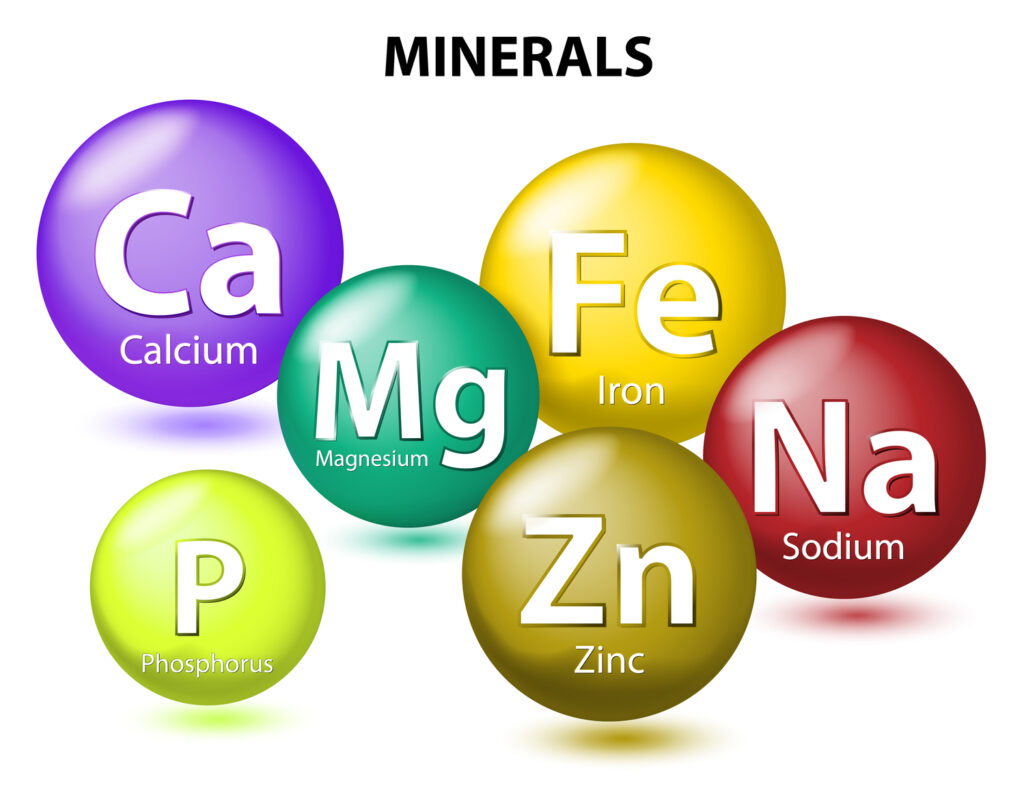Vitamins, minerals and supplements play essential roles in supporting various bodily functions and promoting overall health. Here are some of the key benefits they offer:
Vitamins:
- Immune Support: Vitamins such as vitamin C, vitamin D and vitamin A play crucial roles in supporting the immune system’s function, helping the body fend off infections and illnesses.
- Antioxidant Protection: Vitamins like vitamin E, vitamin C and beta-carotene (a precursor to vitamin A) act as antioxidants, helping to neutralize harmful free radicals and protect cells from oxidative stress and damage.
- Energy Metabolism: B-vitamins (such as B12, B6 and folate) play a vital role in energy production by aiding in the breakdown of carbohydrates, fats and proteins for energy.
- Bone Health: Vitamin D and calcium are essential for maintaining strong bones and preventing conditions like osteoporosis.
- Blood Clotting and Wound Healing: Vitamin K is important for blood clotting, wound healing and bone health.
- Vision and Skin Health: Vitamin A is critical for maintaining healthy vision, supporting skin health and promoting the normal functioning of various tissues


Minerals:
- Bone Health: Calcium, magnesium and phosphorus are crucial for maintaining strong bones and teeth.
- Nerve Function: Minerals like potassium, sodium and magnesium help regulate nerve impulses and muscle contractions.
- Fluid Balance: Electrolytes such as sodium, potassium and chloride play a role in maintaining proper fluid balance in the body.
- Blood Pressure Regulation: Minerals like potassium, calcium and magnesium are involved in regulating blood pressure.
- Iron Transport: Iron is vital for oxygen transport in the blood and energy production within cells.
- Thyroid Function: Iodine is a key component of thyroid hormones, which regulate metabolism and energy production.


Supplements:
- Filling Nutritional Gaps: Supplements can help bridge nutritional gaps when dietary intake is insufficient in certain nutrients due to dietary restrictions, allergies, or food availability.
- Specific Health Goals: Supplements can be used to target specific health goals, such as muscle gain, weight loss, or improved skin health.
- Support During Special Life Stages: Pregnant women, breastfeeding mothers, athletes and the elderly may require additional nutrients that can be provided through supplements.
- Brain and Cognitive Health: Omega-3 fatty acids (found in fish oil) and certain herbs (like ginkgo biloba) are associated with cognitive health and brain function.
- Heart Health: Omega-3 fatty acids, coenzyme Q10 (CoQ10), Antarctic Krill Oil, Garlic supplements are believed to support heart health by promoting healthy cholesterol levels and reducing inflammation.
- Joint Health: Glucosamine and chondroitin are commonly used to support joint health and alleviate symptoms of conditions like osteoarthritis.


It’s important to note that while vitamins, minerals and supplements offer various benefits, they should not replace a balanced diet. Whole foods provide a complex matrix of nutrients that work synergistically and a varied diet should always be the foundation of good nutrition. Before starting any supplementation regimen, it’s recommended to consult with a healthcare professional to determine your specific needs and to ensure that supplements are safe and appropriate for your individual health status.



